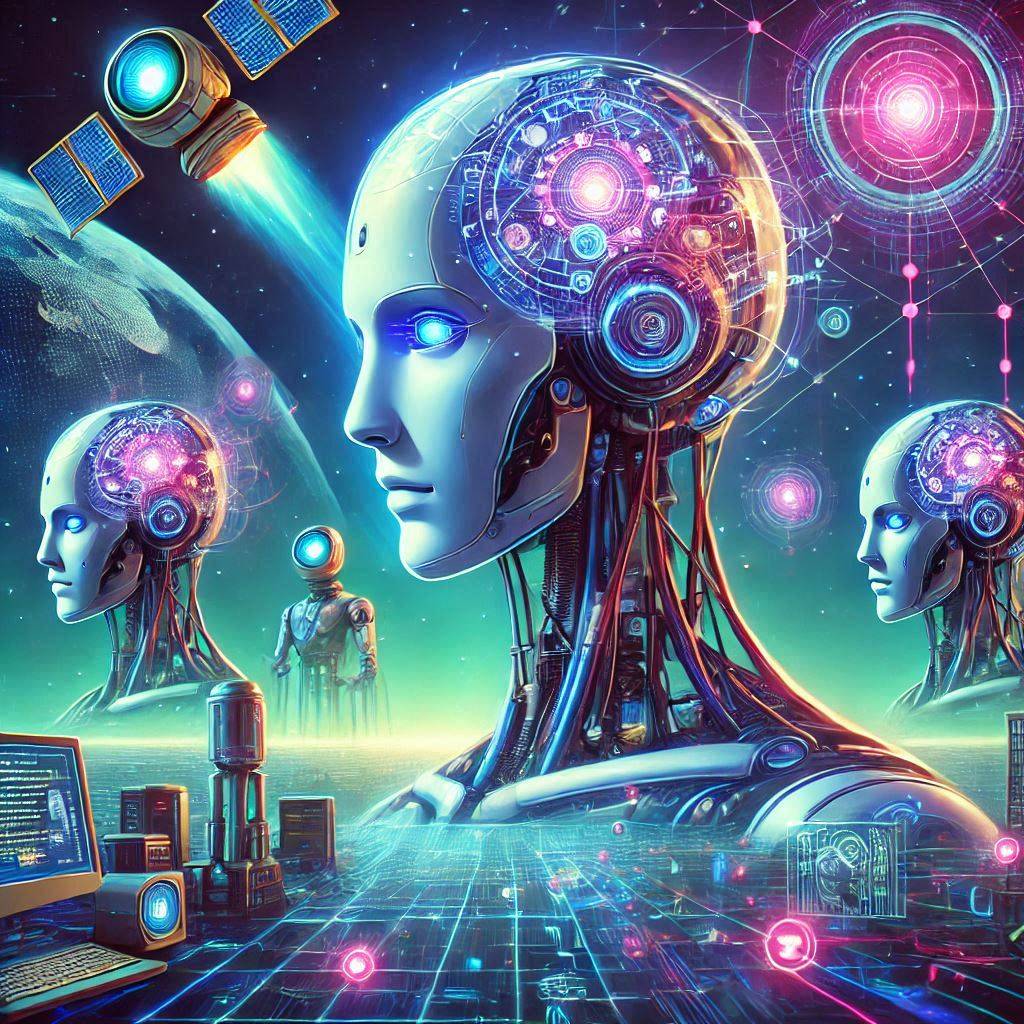Top 5 AI Trends to Watch in 2025: Beyond ChatGPT and Its Peers. Artificial Intelligence (AI) continues to revolutionize industries worldwide. As we approach 2025, the next phase of AI innovation promises to redefine business operations, consumer experiences, and global technology trends. While tools like ChatGPT have popularized AI, the future goes far beyond conversational models.
In this article, we explore the top five AI trends expected to dominate 2025, offering insights into how they will shape industries and influence daily life.
Top 5 AI Trends to Watch in 2025: Beyond ChatGPT and Its Peers
1. Generative AI Diversification
Generative AI tools like ChatGPT and DALL·E paved the way for creative applications in text, images, and videos. However, the next phase of generative AI focuses on specialized solutions.
What to Expect:
- Industry-Specific AI Models: AI tailored for healthcare, finance, manufacturing, and education.
- Enhanced Personalization: Models that adapt to individual preferences, offering customized solutions.
- High-Fidelity Outputs: More accurate and realistic media generation, from deepfake detection to lifelike digital twins.
Impact:
Generative AI will streamline processes such as personalized learning, medical diagnoses, and advanced product prototyping.
2. AI in Decision-Making
AI will evolve from assisting decision-making to becoming a central tool for strategy formulation and implementation.
Key Developments:
- Predictive Analytics: AI tools will analyze vast datasets, offering actionable insights.
- Risk Management: AI systems will provide detailed risk analysis across sectors like finance, logistics, and insurance.
- AI-Powered Governance: Governments will integrate AI for policy-making, urban planning, and resource allocation.
Example Applications:
- Retailers predicting consumer trends.
- Banks optimizing loan approvals.
- Governments addressing resource shortages.
3. AI-Driven Sustainability
As sustainability becomes a global priority, AI will play a critical role in achieving environmental and energy goals.
Innovations to Look For:
- Smart Grids: AI-powered energy grids that optimize energy distribution and consumption.
- Green AI: Models designed to reduce computational costs and energy usage.
- Environmental Monitoring: AI for tracking climate change, deforestation, and wildlife preservation.
Benefits:
AI will enable more efficient resource utilization, helping industries meet sustainability targets and reduce carbon footprints.
4. Human-AI Collaboration
The focus will shift from replacing human labor to enhancing human capabilities through collaboration with AI.
Evolving Roles:
- Augmented Workforce: AI tools aiding in creativity, productivity, and innovation.
- AI Assistants for Everyday Use: From healthcare to education, AI assistants will become indispensable.
- Skill Enhancement: AI-powered platforms providing real-time training and upskilling opportunities.
Industries Impacted:
- Healthcare: AI supporting doctors with diagnosis and treatment plans.
- Education: AI tutors personalizing learning paths for students.
- Creative Fields: Designers leveraging AI for idea generation and execution.
5. Ethical AI and Regulation
As AI becomes more influential, ethical concerns and regulatory frameworks will gain prominence.
Critical Areas of Focus:
- Bias and Fairness: Ensuring AI models are impartial and equitable.
- Data Privacy: Strengthening measures to protect personal data in AI systems.
- Global Regulations: Governments will collaborate to create standardized guidelines for AI usage.
Potential Challenges:
Balancing innovation with ethical practices will require ongoing dialogue between policymakers, tech companies, and society.
How These Trends Will Shape Industries
Healthcare:
AI will revolutionize diagnostics, drug development, and personalized medicine. Wearable devices and AI apps will enable remote health monitoring.
Retail and Marketing:
Predictive analytics and personalized recommendations will redefine customer engagement and supply chain management.
Finance:
Fraud detection, algorithmic trading, and AI-driven customer service will become mainstream.
Education:
Virtual classrooms powered by AI tutors will provide tailored learning experiences, bridging gaps in accessibility.
The Role of Startups and Big Tech
Both startups and established tech giants will play critical roles in driving AI innovation. Startups will focus on niche solutions, while big tech companies will scale AI applications across industries. Collaboration between these entities will accelerate the adoption of these trends globally.
Preparing for the AI Future
- Adopt Early: Businesses should invest in AI tools to stay competitive.
- Upskill Continuously: Professionals must learn to collaborate with AI systems.
- Focus on Ethics: Prioritizing ethical practices will ensure sustainable growth.
Also Read – Mastering Photoshop Generative Fill A Complete Guide
Conclusion
The future of AI in 2025 is filled with opportunities and challenges. From transforming industries to addressing global issues like sustainability and fairness, AI will continue to shape our world. Staying informed and proactive is key to leveraging these advancements for a brighter future.
Keep an eye on these trends, as they will redefine how we live and work in the years to come.



